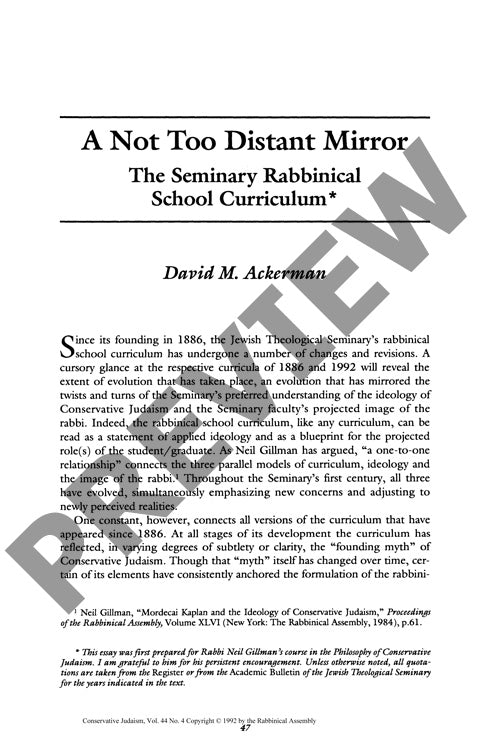A Not Too Distant Mirror the Seminary Ra
Couldn't load pickup availability
The Jewish Theological Seminary's rabbinical curriculum serves as a powerful lens into Conservative Judaism's evolving identity and mission across more than a century. From its 1886 founding through 1992, the Seminary's approach to training rabbis underwent six distinct transformational stages, each reflecting broader shifts in American Jewish life and religious leadership. Analysis of curriculum documents, registers, and academic bulletins reveals persistent foundational elements of Conservative Judaism's "founding myth" - including commitment to viable American Judaism, wissenschaft scholarship, Judaism's historical development, k'lal yisrael, traditional Hebrew usage, and halakhic conservatism. As American Jewish needs evolved, the curriculum progressed from producing scholar-teachers and preachers to developing multi-faceted religious leaders equipped as Jewish civil servants, pastors, counselors, and legal decision-makers. A pivotal shift occurred between 1977-1989, when emphasis moved from extensive cognitive knowledge to methodological competence, reconceptualizing rabbis as mediators rather than authorities of Jewish tradition. The current curriculum, implemented in 1989-90, introduces innovative elements like mandatory theological stance development and field work rotations while maintaining traditional core emphases. This curricular evolution illuminates Conservative Judaism's ongoing negotiation between critical scholarship and traditional observance, demonstrating how educational institutions both mirror and actively shape religious movement identity.

More Information
-
Physical Description
-
Publication Information
Published 1992
ISBN
-
Publication Credits
David Ackerman

